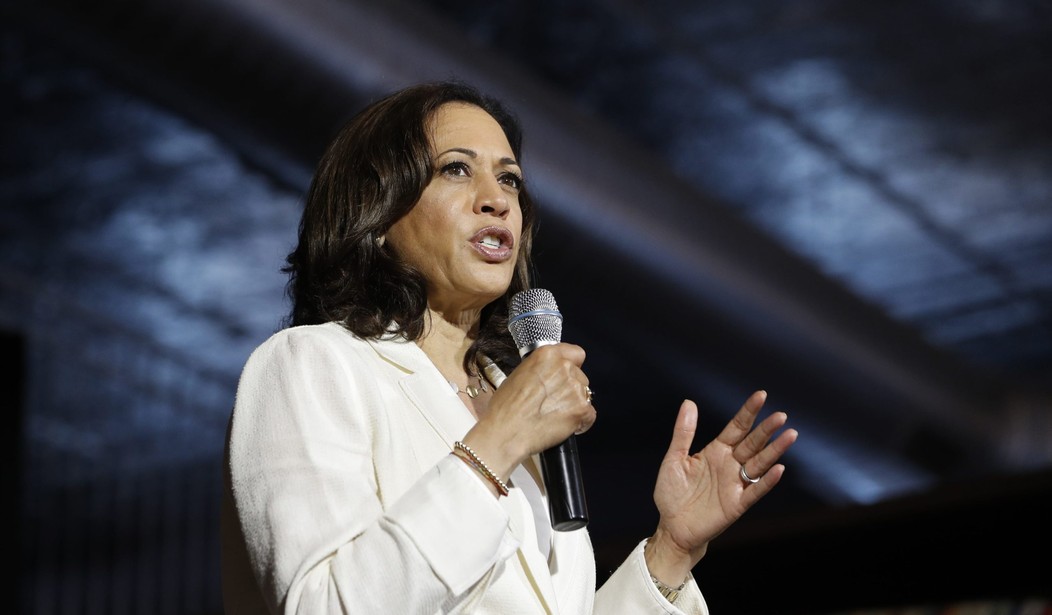The Iowa caucuses are still three months away, but the presidential campaign of Kamala Harris is faltering badly.
Following hot on the heels of the implosion of the Beto O’Rourke campaign, Harris has cut almost all of her paid staff in New Hampshire and shuttered several state offices. She remains on the campaign trail in Iowa, but even her most diehard supporters have seen the end coming.
“We had to lay people off. Yes, we did. We had to lay people off,” Harris said in Ankeny, Iowa, on Friday. “I am very sad about that. It was a very tough decision that we had to make, but frankly a necessary decision. I am all-in in Iowa. And I intend to win.”
The reasons given by a staffer to CBS News are revealing.
“Senator Harris and this team set out with one goal — to win the nomination and defeat Donald Trump in 2020,” Nate Evans, her campaign’s New Hampshire spokesman, said in a statement.
“To do so, the campaign has made a strategic decision to realign resources and go all-in on Iowa, resulting in office closures and staff realignments and reductions in New Hampshire,” he continued. “The campaign will continue to have a staff presence in New Hampshire but the focus is and will continue to be on Iowa.”
The California senator also will not visit New Hampshire to file for the primaries in person, as her rivals, South Bend, Indiana, Mayor Pete Buttigieg and Sen. Bernie Sanders, did.
Democratic voters in Iowa are rejecting Harris in favor of other, far more radical candidates. And it’s true, the most recent polls show a growing number of undecided voters that give hope to trailing candidates like Harris.
The lack of enthusiasm for Biden’s candidacy underscores a broader trend emerging in the states that matter most in the Democratic Party’s high-stakes presidential nomination fight: Primary voters appear to be getting less certain of their choice as Election Day approaches.
The historically large field, while in part of measure [sic] of the desire to oust the incumbent president, has also made it harder for the top contenders to forge a more focused contest. Nine Democrats so far have qualified for the party’s November debate and a dozen more are still fighting for attention. Among the top tier, the liabilities of Biden, Sen. Elizabeth Warren and Sen. Bernie Sanders, in particular, are becoming more visible as Iowa’s Feb. 3 caucuses approach.
Major donors and party leaders across the country have publicly and privately raised concerns about the direction of the primary election recently as well. But interviews with dozens of primary voters across Iowa and New Hampshire in recent days reveal a pervasive feeling of unease.
That “unease” is due to the radical nature of the frontrunners. Harris might not be a radical in the same league as a Bernie Sanders or Elizabeth Warren, but it’s also clear that she was no mainstream “moderate” either. The kind of heated rhetoric coming from most of the Democratic candidates scares normal people. They don’t believe in the apocalypse if Donald Trump wins a second term, and the hysteria only makes them more skeptical.
Harris ran for president four years too late. Mega-donors in the Democratic Party are opening their wallets and activists are flocking to campaigns that promise a radical alteration of the American experiment. As a result, she was never able to generate the excitement and passion being shown by Warren and Sanders supporters.
I would sincerely hope that when she announces that her campaign is over she won’t blame “racism” or her gender for her defeat. Kamala Harris won’t win the Democratic nomination for president because she failed to anticipate and get on top of trends in the way a sizable number of Democrats think.
It’s a different Democratic Party than when Harris was elected senator and especially since she announced her candidacy for president.










Join the conversation as a VIP Member